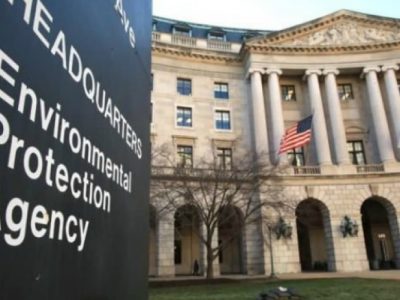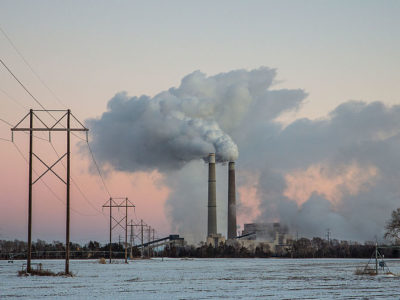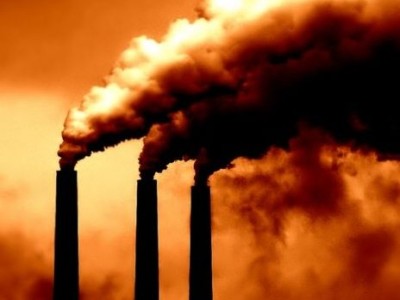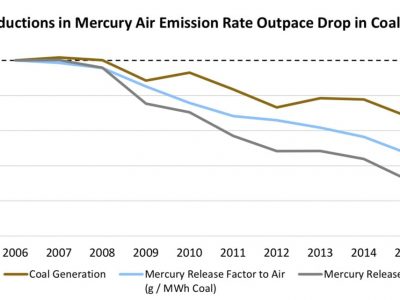Why Energy Conservation Will Remain Crucial
Even after switching to clean power, we’ll still need to limit energy use.
If we switch to renewables, we won’t need to worry about saving energy. Right? Wrong! One reason to save energy is to limit carbon emissions from the energy we use. That's going to important until the energy system has been completely cleaned up. But energy conservation is important for reasons that go beyond the direct effect on emissions. Before I get to the reasons, I need to explain what I mean by energy conservation and why it’s different than energy effi...
CONTINUE READINGRegan Hits His Stride
Under Administrator Michael Regan, the Biden EPA is beginning to churn out important new regulatory proposals.
The Trump Administration left a trail of regulatory destruction behind it. Cleaning up the mess and issuing new regulations is Priority #1 for the Biden Administration. Under EPA head Michael Regan, the effort is beginning to pick up steam. EPA has begun the year with several major new regulatory efforts. No one of them is transformative standing alone, but their cumulative impact will be substantially cleaner air and lower carbon emissions. Feb. 28. EPA pr...
CONTINUE READINGWhy Are Big Utilities Planning to Cut Carbon?
The top ten utilities have set goals for emissions reduction. It’s less clear what’s driving them.
As my post on Monday indicated, the top ten utilities have all announced plans for cutting carbon in the next several decades. Some of these utilities, like PG&E or ConEd, operate in states that have ambitious climate policies. It’s easy to see why utilities in New York or California would be setting their own targets. But it’s less clear why utilities in other parts of the country would be doing so. In some states, to put it bluntly, the government’s answer to...
CONTINUE READINGEmissions by the Big Utilities: Where They Are, What They’re Aiming For
Almost all the top ten utilities are big emitters today but looking to cut back.
There’s a lot of discussion of how the private sector is supporting renewable energy, but it’s almost all about power consumers like Apple and Walmart. But what about the companies who are selling the power? As a first step to getting a better sense of where the utility industry is going, we accumulated some basic data about the top ten utilities by market value. It turns out that most of them are 50-60% reliant on fossil fuels, with a lot of the remainder comin...
CONTINUE READINGWashington State Steps Up
A new law is the latest sign that the future is electrical, not oil.
On the weekend weekend, Governor Jay Inslee signed a major transportation bill. The most dramatic feature of the bill is that it will mostly ban new gas cars in Washington as of 2030. That puts Washington ahead of California, Massachusetts and New York, as well as Canada and Japan. Washington’s deadline is tied with Israel, the Netherlands, and with only Norway out ahead of the pack. The new deadline is part of a comprehensive transportation bill, which has some impo...
CONTINUE READINGPollution Control as Climate Policy
Tightening air quality standards will also reduce carbon emissions.
The Biden Administration is slowly grinding away at an important regulatory task: reconsidering the air quality standards for particulates and ozone. Setting those standards is an arduous and time-consuming process, requiring consideration of reams of technical data. For instance, a preliminary staff report on fine particulates (PM2.5) is over 600 pages long. When the process is done, the result will not only be better protection of public health. It will also be a red...
CONTINUE READINGEnvironmental Justice, Truck Pollution, and the Biden EPA
How will EPA integrate EJ into its rule making? The answer remains murky.
EPA recently released a notice of proposed rulemaking for pollution from new heavy-duty vehicles. I was interested to see how environmental justice figured into the analysis, looking for clues about how the Biden Administration plans to make EJ part of decision making. What I found wasn’t very enlightening. Perhaps they’re still trying to come up with the answer themselves, as shown by their request for further comment about the environmental justice implications o...
CONTINUE READINGOlá Jeff
Governor of Amazonas calls on Amazon’s founder Jeff Bezos (and other wealthy business leaders) to invest in a sustainable tropical forest economy
A new video from the governor of Amazonas kicks off with an informal salutation: “Olá, Jeff.” Directed at Jeff Bezos, the founder and former CEO of Amazon, the video is narrated in the voice of the Amazon rainforest and contrasts the activities and value of the mega corporation with that of the world’s largest tropical forest region and its 38 million people. “If your company is the most valuable of all, I am priceless,” the forest says. The video is...
CONTINUE READINGRegistration Is Open for the 2022 California Water Law Symposium
California's Most Important Annual Water Law Conference--Law Student Organized!--Set for April 9th
Registration is now open for California's 2022 Water Law Symposium, scheduled for Saturday, April 9th. U.C. Davis School of Law has the honor of hosting this year's Symposium, which is an extraordinary event in two respects: first, it is organized entirely by law students (rather than law firms, water organizations, law professors or commercial vendors). Second, the Water Law Symposium represents a unique and welcome collaboration among seven top Northern California...
CONTINUE READING(Mis)Estimating Regulatory Costs
EPA’s cost estimate for its mercury rule was way, way off.
In describing cost-benefit analysis to students, I’ve often told them that the “cost” side of the equation is pretty simple. And it does seem simple: just get some engineers to figure out how industry can comply and run some spreadsheets of the costs. But this seemingly simple calculation turns out to be riddled with uncertainties, particularly when you’re talking about regulating the energy industry. Those uncertainties need more attention in designing regulatio...
CONTINUE READING












